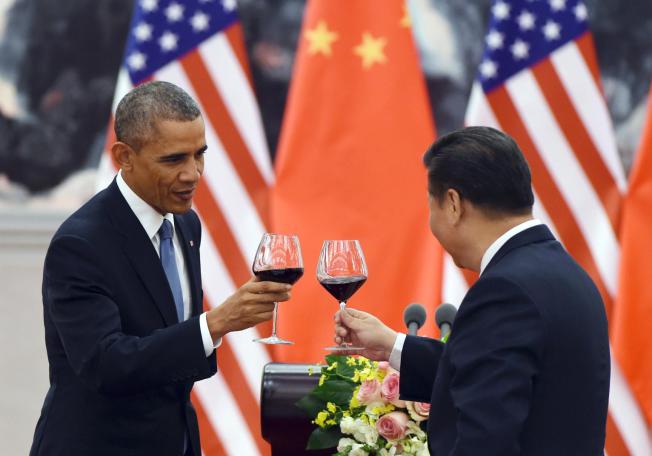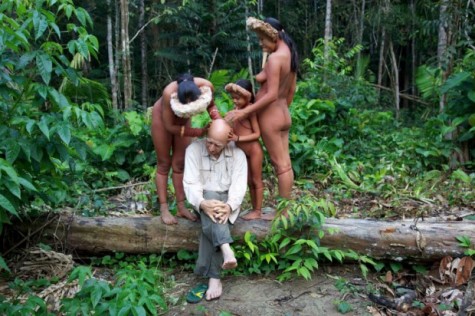 Living in a foreign country can be exhilarating. Every time you step out your front door you are exploring a strange and exciting land. It’s like you are always on vacation. Likewise, reporting in a foreign country can be amazing as you get to dig into another culture in a way that no one else does.
Living in a foreign country can be exhilarating. Every time you step out your front door you are exploring a strange and exciting land. It’s like you are always on vacation. Likewise, reporting in a foreign country can be amazing as you get to dig into another culture in a way that no one else does.
It can also be a pain in the ass. You are continually sticking your foot in your mouth and missing cues. You can’t be sure what you are missing but you can always be sure you’re missing something. And you are often trapped by stereotypes that you may not even be aware of and that change for every country. Americans are too direct. They’re pushy. They don’t say what they mean. They’re too soft. They’re too hard.
All of this is only fair, since we Americans have our own stereotypes about other cultures. Germans are precise and exacting. Italians are hot-blooded. Australians are out of their bloody minds, mate.
As I stand in the middle of a Mexican market trying to order some fruit while turning beet red because I know I have insulted the fruit seller but I just don’t know how, the whole thing feels like some kind of hidden code. And I don’t have the cypher.
So recently I’ve been trying to come up with a cypher – a lens through which I can view other cultures so that they make sense. Okay, that’s asking a lot – maybe just a way to make less of an ass of myself.
Being a writer, I’ve decided the cypher is language, specifically a single word. You see, my theory is that every culture has a different word – a word that resonates deeper than any other – and that the fundamental problem of cross-cultural dialogue is that we all assume that this word is the same in every culture. Thus, when your word comes in conflict with another group’s word, an awkward culture clash happens.
 Let’s start with the United States’ word. Freedom. It’s a word that resonates with left and right, urban and rural. For some people it’s the freedom to carry guns, go where they want, live without government interference. For others it’s the freedom of speech, of religion, freedom from fear and poverty. Freedom to make your way in the world and support your family. Free markets, freedom of the hills, freedom of the open range. It’s what created our country and it’s what drives us.
Let’s start with the United States’ word. Freedom. It’s a word that resonates with left and right, urban and rural. For some people it’s the freedom to carry guns, go where they want, live without government interference. For others it’s the freedom of speech, of religion, freedom from fear and poverty. Freedom to make your way in the world and support your family. Free markets, freedom of the hills, freedom of the open range. It’s what created our country and it’s what drives us.
But it’s not what drives everybody. We often wonder why Chinese citizens tolerate a political system that represses the media, dissidents, and free elections. In my limited dealings with China, I found that most of my confusion there came down to a clash of words. I submit that China’s word is respect.
Mianzi – or face – is a huge deal there, of course, and basically boils down to respect. But it’s also respect for your elders, respect for hard work, knowledge. Chinese people believe in a basic respect that you give to other people you meet. In America, we say you have to earn respect. In China they give it and carefully maintain it. Sure they like freedom but respect is far more important.
The recent visit of President Xi Jinping is a perfect example of what I mean. While the US was talking about the South China Sea, human rights and cyber security it seemed like the Chinese press was more concerned with the welcome ceremony, Michelle’s dress, the 21-gun salute, and North Portico state dinner.
 I have been a guest of many Chinese banquets where I was desperate to interview one or two of the attendees. There I was, notebook in hand, waiting to ask my questions and all I get is toasts and anxiety over the seating chart (traditional Chinese banquets have a specific arrangement for seating, based on the importance of the person, which still escapes me). And by the end of the meal, I was so tipsy from all the toasting of hard liquor, all I wanted was to go to the hotel and sleep.
I have been a guest of many Chinese banquets where I was desperate to interview one or two of the attendees. There I was, notebook in hand, waiting to ask my questions and all I get is toasts and anxiety over the seating chart (traditional Chinese banquets have a specific arrangement for seating, based on the importance of the person, which still escapes me). And by the end of the meal, I was so tipsy from all the toasting of hard liquor, all I wanted was to go to the hotel and sleep.
But when I look at these meals through the lens of respect, they start to make sense and I realize that my own desire to get the truth and share it freely abroad had been subverted by my host’s desire to show and receive respect. And when I tried to pick up the tab (expressing my own values of a free and ethical journalism that cannot accept gifts from sources) I bumped into often insulting conversations over the values of respect and hospitality.
With this in mind, I am trying to craft a word for Mexico to help me make less of a regular ass of myself. The one I have now is community. Community, family, neighborhood – these things have traction in Mexico that they just don’t in the US. People here insist on meeting face-to-face more than the US. They take family way more seriously than I am used to.
 You might be thinking that my cultural cypher is nothing more than a stereotype of a different color. You might be right. Except that rather than driving a wedge between people, it attempts to bring them together. Because it starts with examining our own biases first.
You might be thinking that my cultural cypher is nothing more than a stereotype of a different color. You might be right. Except that rather than driving a wedge between people, it attempts to bring them together. Because it starts with examining our own biases first.
None of this is to say that the US doesn’t value community or that Chinese people aren’t interested in freedom. It’s just not their central value. And as soon as we can understand this – and try to imagine the world as seen through a different word – the sooner we may find a whole lot of foreign affairs start to make sense.
Photo Credits: US News, Shutterstock, Erik Vance, Sebastião Salgado
Thank you for this post. It helps me put in perspective the differences between Denmark where I live now and the US where I am from. Hygge (coziness) is the Danes’ “keyword” and what you say totally fits.
Yes, and I think the Italians’ keyword is “connected.” I also think it’s interesting that German and English — and Danish too? — have a word for “home,” and Italian doesn’t. They just say “su casa,” meaning, “at the house.”
I could think of a couple words for Italian. Connected works. So would family. But if I was absolutely forced to choose one I’d probably go with beauty. (Bello/a)
So much here is about looking good (la bella figura) and enjoying life (la vita é bella/dolce far niente). Italy itself is full of natural beauty. And life is very focused on enjoying life in the moment. Nothing is more important than whatever conversation is going on right now. Any given day is centred on being at the beach or whatever meal is on the table. It’s all about a philosophy of living well to an extreme. There’s a bad side to it too, though. It’s part of why things here have a tendency to just… uh, not work.
Within the language, bello’s scope is so broad, too. It’s used from everything from “beautiful” to “cool.” I struggled for a long time using it casually just because calling normal things I liked ‘bello’ because seemed over the top. The only way I was able to reconcile that is to look for an analogous English word to use in my brain that was somewhere in between “beautiful” and “cool”, and I settled on “lovely.” I find myself using “lovely” much more in English now because of that habit. I think living her for 2+ years has effectively turned me into a more emotional thinker.
That’s so interesting, Sean. Maybe when things work, it’s because of “connected,” but when you’re not getting stuff done, just living, it’s “bello.” In fact, do they have a word for “connections?” And does a country’s keyword have to be a word you hear a lot? And could a country have two keywords? Erik, can you enlighten us?
Well, literally translated from connections, there’s collegamenti, but it’s never felt ever-present to me in the same way bello does.
They have the phrase one hand washes the other: “una mano lava l’altra” , but the funny thing is that it’s shortened version of “una mano lava l’altra e tutte e due lavano il viso”; one hand washes the other and both wash the face. So even that’s resonant with the idea of appearances.
Berlusconi? All about la bella figura. 🙂
I feel like you hear a country’s keyword best in its politics. Because politicians try to co-opt a really important concept into their images. In Mexico, I feel like politicians are always saying comunidad, overemphasizing the syllables so that people know how important it is to them. And God knows US politicians can’t get enough of freedom.
I think you´re on the right track with community as the key word for Mexico, but I would go a bit further and say it´s “convivencia”. The verb form is “convivir” — has the same root as conviviality — and means “to live with” — but so much more than that. When you visit your neighbors, help their kids out with pitching, go to a neighborhood meeting, extend lunch 3 hours with friends or colleagues, that´s when you´re “convivir”ing. It describes, I think what makes Mexico such a special place.
While the US has life, liberty and the pursuit of happiness. And by pursuit of happiness, we mean the closest aproximation to utility — money. Mexico has life, liberty and convivencia. It´s definitely a trade off, but I´ve been actively choosing the second option for five years now, and when I go home to the states, I miss it.